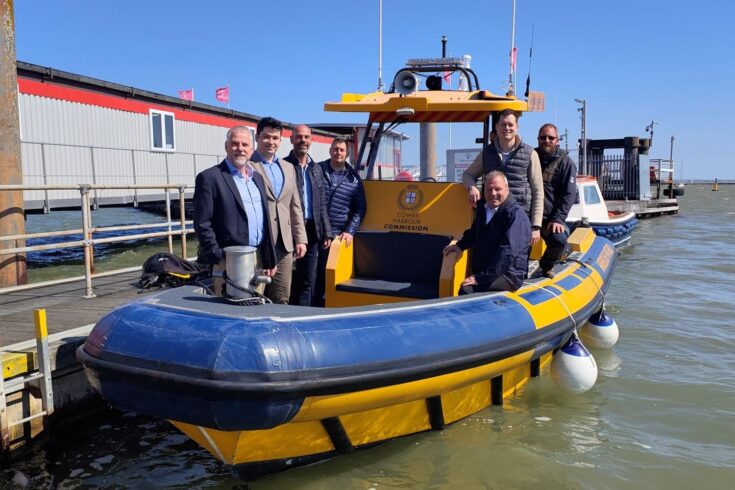Shipping produces 950 million tonnes of carbon dioxide (CO2) each year but the maritime industry’s move to green energy has been slower than in other transport sectors. A diverse range of vessels and duty cycles along with a lack of usage and performance data makes it uniquely difficult for manufacturers and operators to evaluate, adopt and operate sustainable technologies.
Close the knowledge gap and transform the sector
The clean hybrid alternative marine powertrain (CHAMP) two project will change this. Led by advanced engineering specialists, PurpleSector, the team will use their digital workflow, developed at the highest levels of motorsport, to:
- generate data-based vessel requirements
- specify appropriate technologies
- develop optimised clean powertrains
A methanol-fuelled electrified hybrid powertrain, developed during an earlier Clean Maritime Demonstration Competition-funded (CMDC) project, will be used to demonstrate these solutions on the water.
The project’s lead, Theo Abbott, said:
Our team will be deploying technologies, tools and techniques developed in the white heat of Formula 1 to close the knowledge gap and support the sector’s transformation.

Electrified hybrid powertrain running on sustainable green methanol at the Institute for Advanced Automotive Propulsion Systems. The engine is also able to run on any mix of gasoline and methanol to ease the operational transition from fossil to carbon neutral fuels. Credit: PurpleSector
Project partners
Project partners include:
- Royal National Lifeboat Institution
- public sector services provider, Serco
- Cowes Harbour Commission
- Princess Yachts
- independent marine consultants, Solis Marine
- South Devon College
- University of Bath and its powertrain development facility, Institute for Advanced Automotive Propulsion Systems
The University of Bath is updating its powertrain engineering modules to reflect lessons learned in the CHAMP two project. South Devon College is assessing the sustainability gaps in current apprenticeships to ensure the required skills are developed to support future technologies.
The team is also contributing to the development of UK clean marine standards by working closely with the Maritime and Coastguard Agency and the Department for Transport.
About the funding
The CHAMP two project is part of CMDC round three, which has allocated £60 million to 19 projects from across the UK to deliver real world demonstration projects in clean maritime solutions between April 2023 to March 2025.
CMDC is funded by the Department for Transport as part of the UK Shipping Office for Reducing Emissions programme and is being delivered in partnership with Innovate UK.
Theo added:
The great thing about CMDC3 is that it provides critical support and a network of likeminded organisations to ensure our solutions can be generalised and applied to all use cases.
Top image: Vessel instrumentation visits with Cowes Harbour Commission and the Royal National Lifeboat Institution. This data enables a deep understanding of current duty cycles, identifies operational optimisations, and generates real requirements for future sustainable powertrains. Credit: PurpleSector

